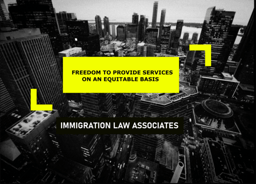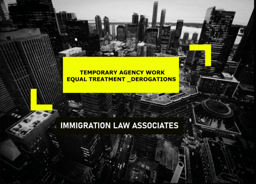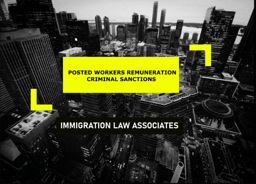Unmarried partners right of residence, a new reference for preliminary ruling to the European Court of Justice

On February 20th, the Upper Tribunal (Immigration and Asylum Chamber) London made a reference for preliminary ruling in the case Secretary of State for the Home Department v Rozanne Banger(C-89/17).
The dispute in the main proceedings:
Ms Rozanne Banger (the appellant) is a South African national. Her partner Mr Philip Rado (UK national) and the appellant have been in a relationship since January 2008 and have been co-habiting since December 2009. The appellant and her partner lived together initially in South Africa and moved together to the Netherlands in May 2010. Mr Rado was working in the Netherlands until he and the appellant moved to the United Kingdom in July 2012. During their time in the Netherlands, the appellant was granted a work permit there on the basis of her accepted relationship with Mr Rado. The Secretary of State for the Home Department refused to grant a residence card under the UK Immigration (EEA) Regulations 2006 as the unmarried partner of a British citizen.
The appellant sought her application to be considered under the judgment in [Surinder Singh (1992)] on the basis that Mr Rado had been exercising treaty rights in the Netherlands before returning to the UK. Where the judgment in Surinder Singh referred to the case of a married couple, the Secretary of State for the Home Department refused to consider the appellant as a family member under the 2006 Regulations.
Interestingly, the first reference to the fact that the refusal did not consider whether the appellant, as an unmarried partner of an EEA citizen, should be regarded as an extended family member under Regulation 8(5) was made by the Upper Tribunal hearing the appeal against the decision of First-tier Tribunal who allowed the appeal against the Secretary of State refusal of a residence card (the First-tier Tribunal Judge allowed the appeal on human rights grounds).
The questions referred for a preliminary ruling:
Do the principles contained in the decision in Immigration Appeal Tribunal and Surinder Singh, ex parte Secretary of State for the Home Department (Case C-370/90) [1992] operate so as to require a Member State to issue or, alternatively, facilitate the provision of a residence authorisation to the non-Union unmarried partner of a EU citizen who, having exercised his Treaty right of freedom of movement to work in a second Member State, returns with such partner to the Member State of his nationality?
Alternatively, is there a requirement to issue or, alternatively, facilitate the provision of such residence authorisation by virtue of European Parliament and Council Directive 2004/38/EC on the right of citizens of the Union and their family members to move and reside freely within the territory of the Member States (“the Directive”)?
Where a decision to refuse a residence authorisation is not founded on an extensive examination of the personal circumstances of the Applicant and is not justified by adequate or sufficient reasons is such decision unlawful as being in breach of Article 3(2) of the Citizens Directive?
Is a rule of national law which precludes an appeal to a court or tribunal against a decision of the executive refusing to issue a residence card to a person claiming to be an extended family member compatible with the Directive?
A new landmark case?
In my view, the main question is whether the judgment will add to the current case.
Unmarried partners are beneficiaries of the Directive 2004/38/EC (Article 3.2(b):
“the partner with whom the Union citizen has a durable relationship, duly attested.”
As laid down by the same article:
- The entry and residence of unmarried partners shall be facilitated “in accordance with its national legislation”
- “The host Member State shall undertake an extensive examination of the personal circumstances and shall justify any denial of entry or residence to these people.”
However, most EU countries have not defined exactly the dully attested durable relationship in the sense of Article 3.2(b) Directive 2004/38/EC.
With simple words, by virtue of the EU law, Member States are left discretion to enforce the national law but practically the Member States are enforcing only the discretion directly derived from the EU law.
In [Rahman and Others (2012)], the Court has ruled that “the host Member State must ensure that its legislation contains criteria … consistent with the normal meaning of the term “facilitate” and of the words relating to dependence used in Article 3(2), and which do not deprive that provision of its effectiveness”. In context, by virtue of the same article, Member State must facilitate entry and residence of unmarried partners as well and, ensure that its legislation contains criteria consistent with the normal meaning of the durable relationship in the sense of Article 3.2(b). The criteria are not expected to be less contaminant than these laid down for civil partners, however, should not operate to deprive the provision of its effectiveness.
Applying mutatis mutandis, the substance of the rights from Surinder Singh to the case at issue:
- In accordance with the prohibition of discrimination laid down in Article 12 of the Treaty, Mr Philip Rado, UK national, “who returns to establish himself in that State after having pursued an economic activity in another Member State is in the same situation as a national of another Member State who comes to establish himself in that country”. [Surinder Singh (1992)].
- Prima facie, considering in conjunction, the rights under the Treaty exercised by Mr Philip Rado (Article 39) and the Directive 2004/38/EC, the UK is required to grant leave to enter and reside in its territory to Ms Rozanne Banger, if in accordance with the UK legislation the latter qualifies as the partner with whom Mr Philip Rado has a durable relationship, dully attested.
Providing that the response to the first and/or the second question will be positive, to qualify under the Regulation 12(2) granting a Family permit to extended family members, Ms Rozanne Banger must meet the criteria of eligibility under Regulation 8(5) and notably to bring evidence of a durable relationship (considering the Secretary of State’s guidance a durable relationship normally requires a relationship last for two years and to be one akin to a marriage). In addition, the ECO (Entry Clearance Officer) needs to consider whether “in all the circumstances, it appears appropriate to issue the family permit’ In context, different criteria must be assessed, inter alia:
- “where refusing the family member would not prevent the EEA national from exercising his / her Treaty rights or would not create an effective obstacle to the exercise of Treaty rights;- easy to enforce against unmarried partners where arguably, refusing the residence permit to the third-country national, the EU national would not be required to leave the EU. [McCarthy (2011)].
- “if the applicant would have been refused entry to the UK on general grounds for refusal had they been applying for entry under the Immigration Rules”-high relevance probability.
Conclusion:
Where Member States are generally enforcing the discretion directly derived from the EU law, a greater guidance from the European Court of Justice will add to the case.
Tanel Feldman
Immigration Law Associates





Please sign in or register for FREE
Sign in OR sign up to become a registered The Forum for Expatriate Management website user
Subscribe here